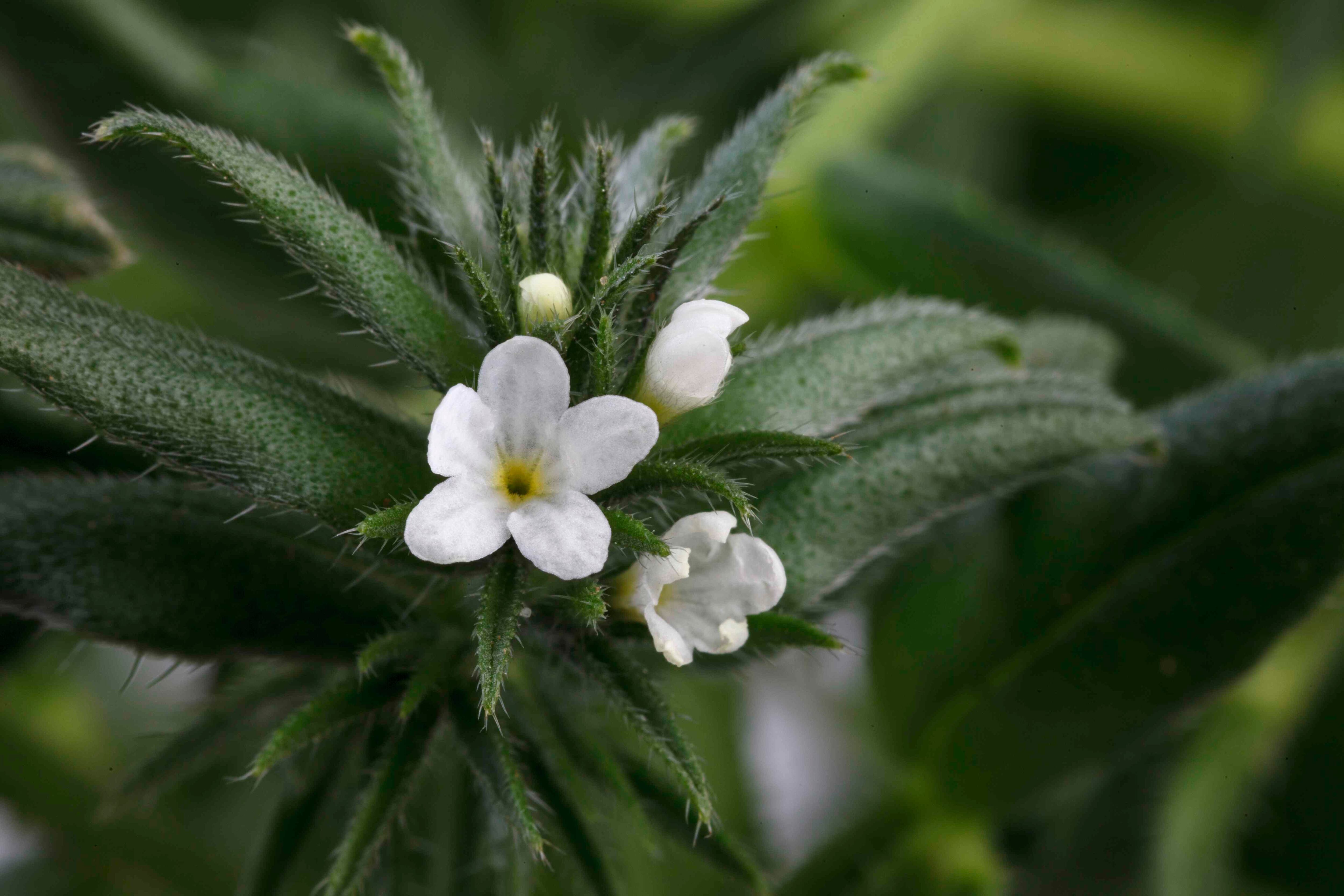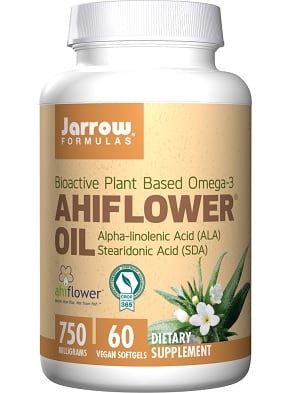The data, published in the journal Nutrients, indicates that the oil has potential for a range of applications, from sports nutrition to immune wellness and senior nutrition, said Greg Cumberford, VP Strategic Initiatives at Natures Crops International, the exclusive producers of Ahiflower oil.
Scientists from the Université de Moncton and the Centre hospitalier universitaire Dr-Georges-L. in Canada also reported that a three gram dose of Ahiflower oil, which delivers 0.44 grams per day of stearidonic acid (SDA), was associated with significant increases in blood levels of eicosapentaenoic acid (EPA), as well as eicosatetraenoic acid (ETA) and docosapentaenoic acid (DPA).
“This is the first investigation of an immune response following the consumption of SDA-containing oil, and indicates that dietary oils such as Ahiflower oil may share immune modulating properties that are typically associated with the consumption of marine oils,” they wrote.
Ahiflower oil
The oil reportedly offers the highest levels of non-GM omega-3 essential fatty acids among commercially available dietary plant oils, combining ALA (alpha linolenic acid) and high levels of SDA. It also offers GLA (gamma linolenic acid), an omega-6 essential fatty acid, and oleic acid, an omega-9 fatty acid, to complement the overall healthy profile of this plant oil.
One issue with all plant-based omega-3 sources has been the very low conversion ratio of ALA, the predominant omega-3 in plant sources such as flax, chia and hemp, into EPA, one of the two (along with DHA) omega-3 fatty acids for which most of the research on health benefits has been done. Most experts peg this conversion at as low as 3% to as much as 20% for vegetarians. The proportion of ALA converted to DHA is small.

SDA, on the other hand, converts to EPA at ratio of 30% to 35%, and that direct consumption of SDA is far more efficient than consuming large amounts of ALA.
“Ahiflower is the first plant-dervied oil to contain both of the right types of omega-3 and omega-6, in balanced levels, to support a healthy inflammatory response,” said Andrew Hebard, CEO and Founder of Natures Crops International. “This new clinical trial’s publication shows that Ahiflower oil has a special role to play in omega nutrition, especially for vegans, vegetarians, and people who are concerned about sustainability in their omega supplements.”
Study details

The researchers divided 88 healthy people into four equal groups: 100% high oleic sunflower oil (HOSO); 30% Ahiflower oil (Ahi) + 70% HOSO (equivalent to 2.92 mL Ahiflower oil and 6.81 mL HOSO); 60% Ahi + 40% HOSO (equivalent to 5.84 mL Ahiflower oil and 3.89 mL HOSO); or 100% Ahi for 28 days.
Results showed that all of the Ahiflower oil groups displayed significant increases in EPA, ETA, DPA, and ALA levels from baseline values, and compared to the control sunflower oil-only group. However, no significant increases in DHA levels were recorded.
Significant increases in IL-10 production were recorded in the 100% Ahiflower oil group (45%), compared to the control HOSO group.
“IL-10 is an anti-inflammatory cytokine produced mainly by immunosuppressive M2-like monocyte/macrophages,” explained the researchers. “M2 cells, amongst other roles, dampen inflammation and promote tissue remodeling and angiogenesis. IL-10 in turn can polarize M2 cells towards an M2c phenotype which is implicated in the deactivation of inflammation.”
“Future studies should be conducted to determine the potential impact of such dietary oils on the biosynthesis of pro-resolving mediators of inflammation and on objective measures of chronic disease.”
Source: Nutrients
2017, 9(3), 261; doi:10.3390/nu9030261
“Dietary Buglossoides Arvensis Oil Increases Circulating n-3 Polyunsaturated Fatty Acids in a Dose-Dependent Manner and Enhances Lipopolysaccharide-Stimulated Whole Blood Interleukin-10—A Randomized Placebo-Controlled Trial”
Authors: N. Lefort, R LeBlanc, M.E. Surette

